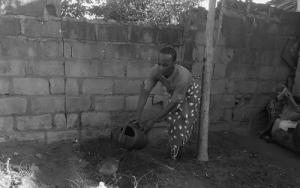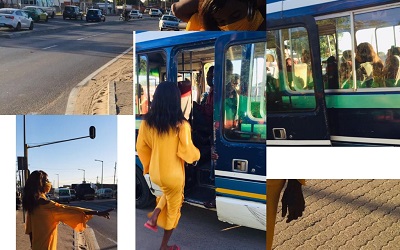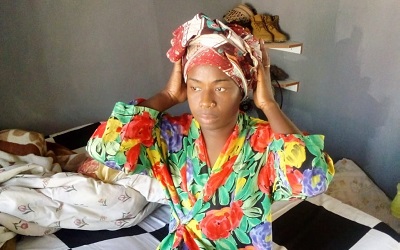You are here
- Home
- Giving voice to marginalised members of Africa’s LBGTQ+ community
Giving voice to marginalised members of Africa’s LBGTQ+ community
10 February 2021

Dr Craig Walker is a Research Associate in the Faculty of Arts and Social Sciences interested in how groups experiencing or overcoming conflict can be supported to connect and empathise to bridge divides and build sustainable peace.
His latest project uses a research technique called PhotoVoice to give trans women in Mozambique a platform to convey their experiences and aspirations on their own terms, in a direct and powerful way.
These women, like trans women in many countries, find themselves at odds with prevailing gender stereotypes which promote hypermasculinity, and penalise deviance from established male and female roles.
As a result they live with prejudice, discrimination and even violence – but as their photographs show, that is by no means the whole story.
What is striking about many of the images they choose to present is how ‘everyday’ these are, the women are eager to illustrate how their lives and daily activities are no different from those of other Mozambican women – tending their gardens, shopping in the market place.
The culmination of the project is to be a public exhibition of the photographs of trans women in a space frequented by the whole community.
Photo captions
Top right: "Watering my garden to show society that transwomen perform all activities like other women in their home space. I call that positive visibility" (click to enlarge)
Above: "This photo represents stigmatization I can face on buses due to my identity" (click to enlarge)
Below: "I'm already awake, with focus and determination for a new day" (click to enlarge)
Researchers will interview those attending to discover whether seeing the lives of these women through their own eyes changes understandings and perceptions.
Dr Walker is interested in how the exhibition of photos and the exhibition space might be a site for overcoming discrimination or prejudice.
But for now, COVID has forced public events to be put on hold, and instead an online exhibition is being planned where viewers’ reactions can be captured.
He still hopes the public exhibition can eventually go ahead, he says:
This is where people connect and empathise with the images and for me, it is a really important aspect of the research to capture the impact and transformation that takes place when this happen.
Looking further ahead, he hopes the work can be used to support the development of the trans community in Mozambique, and is seeking to expand it to other countries.
The women in the project are activists in the process of building a political and social movement.
Part of the project is how this PhotoVoice work and any subsequent work supports the development of that movement, so the research can contribute to real support for them.
Dr Walker first used PhotoVoice in a 2019 project in Uganda, to successfully bring together and promote understanding between refugees and the host community. He says:
I am really interested in the power of photography as a tool for peace and reconciliation.
The work in Oruchinga involved young refugees from a range of different nationalities as well as host Ugandan youth. Many had never mixed with other groups or had been able to communicate with each other because of the diversity of languages spoken in the settlement.
What we saw through the project though was an evident power in the photographs to convey experience and meaning more viscerally, that allowed the youth to identify and connect in a way that transcended the need for verbal communication.
They might not have been able to tell each other about the problems they faced but they could show them, and this started a process of association that began breaking down barriers. Focus on differences started to give way to emphasising similarities.
Our hope for the work with the trans community in Maputo is that we expand this experience, bringing the photographs to a wider audience through more public exhibitions in the near future.
The project, Hypermasculinity After War – Capturing Trans Experience of Violence, Belonging and Identity Through PhotoVoice As Narrative For Resistance, was funded by a seed grant from The Faculty of Arts and Social Sciences in The Open University.
Share this page:
Monthly Archive
- March 2024 (1)
- November 2023 (1)
- February 2023 (1)
- January 2023 (1)
- November 2022 (1)
- October 2022 (1)
Contact us
To find out more about our work, or to discuss a potential project, please contact:
International Development Research Office
Faculty of Arts and Social Sciences
The Open University
Walton Hall
Milton Keynes
MK7 6AA
United Kingdom
T: +44 (0)1908 858502
E: international-development-research@open.ac.uk
.jpg)

